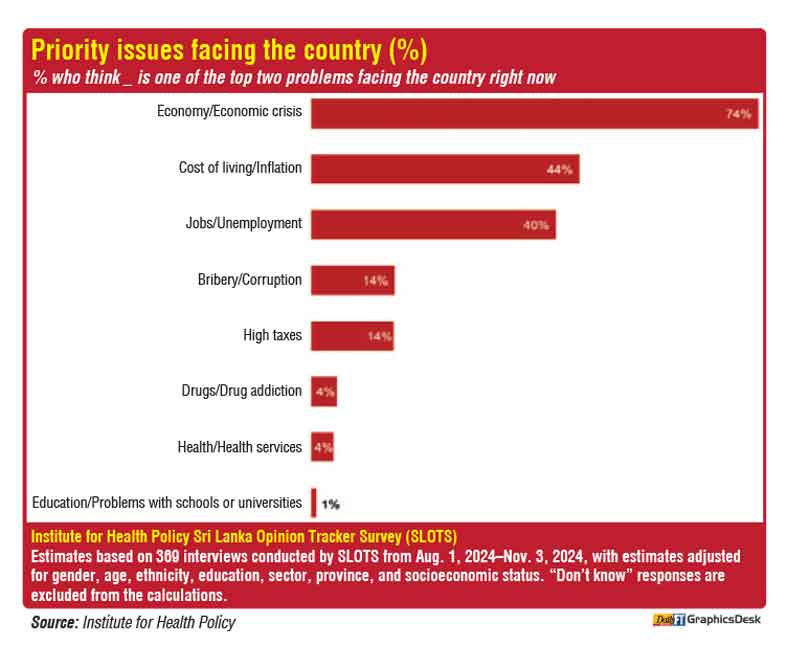Wednesday Feb 18, 2026
Wednesday Feb 18, 2026
Tuesday, 12 November 2024 03:03 - - {{hitsCtrl.values.hits}}

In the latest polling by the IHP Sri Lanka Opinion Tracker Survey (SLOTS) conducted from August to November, 74% of Sri Lankans named the economy as their top concern. Inflation (44%) and jobs/unemployment (40%) followed closely.
The SLOTS poll asks respondents to name the top two problems facing the country, with responses being unprompted. Corruption and high taxes were also cited as priority issues by 14% of the respondents.
IHP is solely responsible for commissioning and designing the survey, and it takes full responsibility for it.
IHP is an independent, non-partisan research institution based in Colombo, Sri Lanka. The SLOTS lead investigator is Dr. Ravi Rannan-Eliya of IHP, who was trained in public opinion polling at Harvard University, and who has conducted many opinion surveys over three decades, both in and outside Sri Lanka.
SLOTS combines data from a national sample of adults (ages 18 and over) reached by random digit dialling of mobile numbers, and others coming from a national panel of respondents who were previously recruited through random selection. All estimates are weighted to be a representative of the national population, including characteristics such as age, gender, province, sector, socioeconomic status, ethnicity and education.
IHP conducts the SLOTS survey to track changes in health and social conditions, and public opinion in the country. IHP is solely responsible for conceiving, commissioning and designing the survey, and it takes full responsibility for it. Interviews are done daily by phone by IHP employees, with respondents recruited by a national field survey or by randomly dialling phone numbers.
SLOTS fieldwork since 2021 has been supported by a range of funders, who play no role in question design, data analysis, or reporting. Past funders have included the Neelan Tiruchelvam Trust, Asia Foundation, European Commission, UK National Institute for Health and Care Research, the Foundation Open Society Institute, and others. Current fieldwork is supported by funding from the Velux Stiftung foundation, New York University Abu Dhabi, USAID, and the IHP Public Interest Research Fund.
The survey findings and IHP reporting do not necessarily reflect the views or positions of past and present funders.